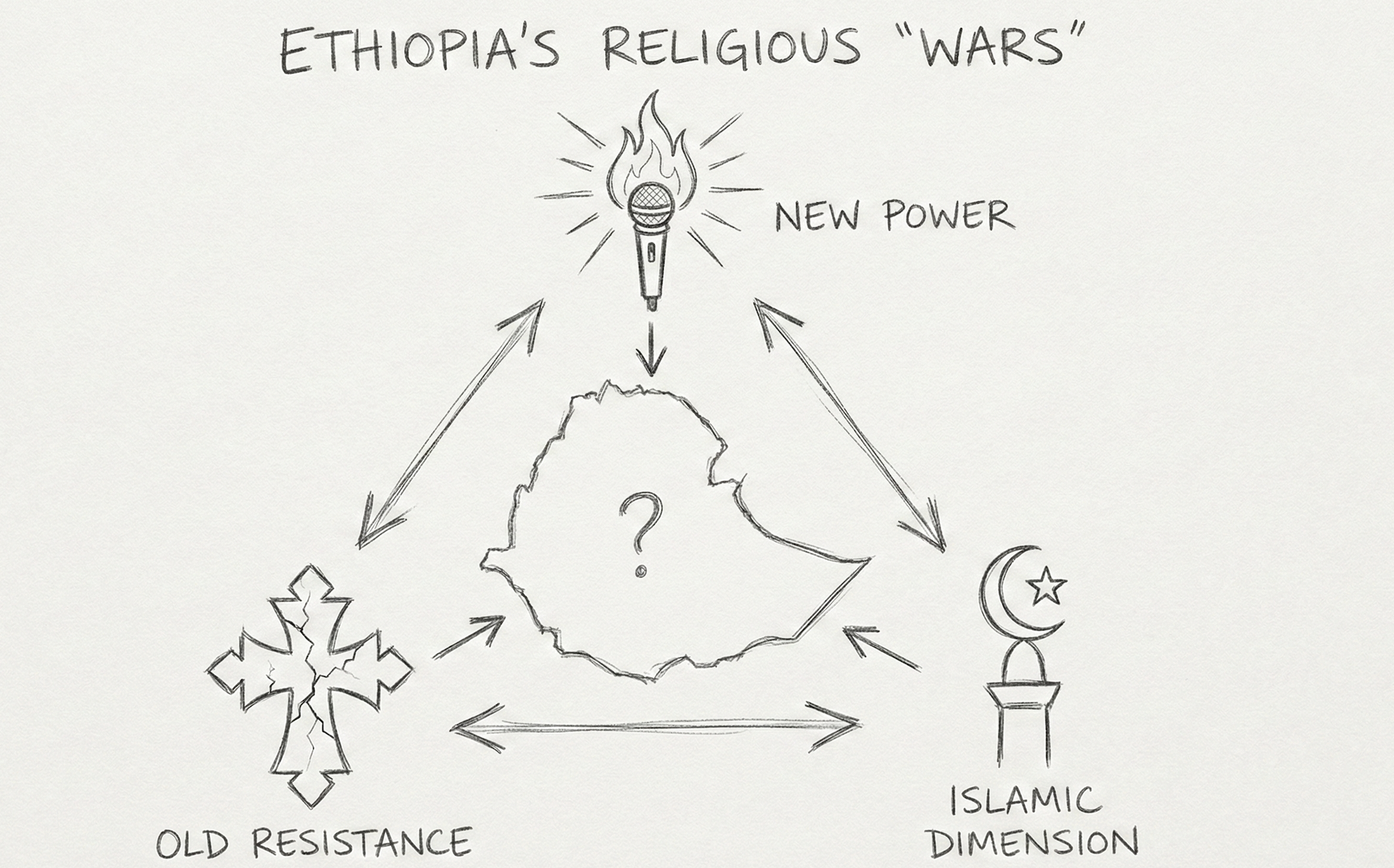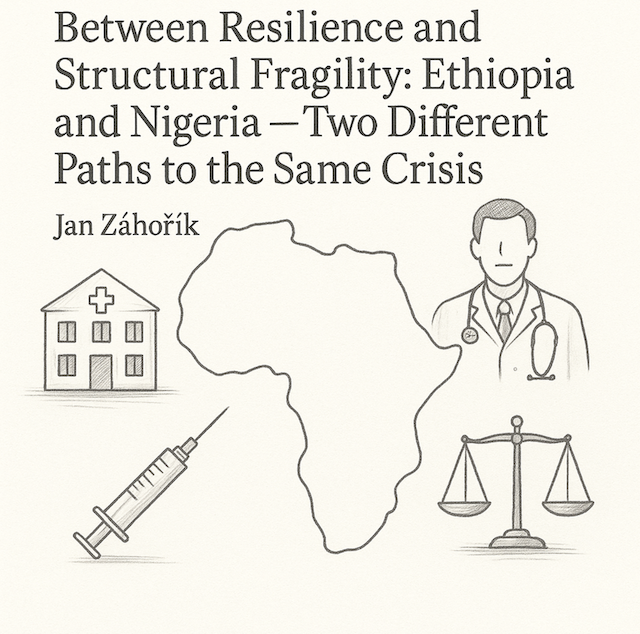Religion is an intellectual tool that strongly attracts human groups. Extremist Islamic radical groups have exploited this in their advocacy activities, making them highly capable of drawing people to their cause in a short time. According to al-Bukhari, the Prophet Muhammad says: "A Muslim is a brother of another Muslim, so he should not oppress him, nor should he hand him over to an oppressor. Whoever fulfills the needs of his brother, Allah will fulfill his needs; whoever brings his (Muslim) brother out of discomfort, Allah will bring him out of the discomforts of the Day of Resurrection, and whoever screens a Muslim, Allah will screen him on the Day of Resurrection.”
The concept of religious brotherhood in Islam creates a sense of unity among Muslims worldwide. A devout Muslim is forbidden to inform on a fellow Muslim, based on the phrase (do not wrong him or turn him in). Helping a Muslim is believed to earn good deeds on the Day of Resurrection. This makes tracking extremist individuals challenging for international intelligence. Even those agencies that cooperate with Arab or Islamic countries' intelligence services run by Muslims only obtain limited information, determined by the extent to which the intelligence service is willing to hand over the perpetrators. Sometimes, these Islamic countries' intelligence services provide false information about opposition activists, justifying their elimination under the pretext of fighting terrorism.
For example, in Syria, any released person signs a form containing phrases like (I admit that I will not return to terrorist groups, engage in armed violence, or participate in any protests against the Syrian government). [1] This admission provides documented criminal evidence that the person was a terrorist, even if they were not.
Many security services have invested in radical jihadist groups, including training them to carry out missions using intelligence methods that protect their privacy, ensuring their continued communication with the intelligence agencies that trained them. This training is not limited to encrypted wireless communications but also extends to social media. Enhanced privacy protection among extremists:
Radical extremist jihadists are known for their ability to maintain their privacy with ease, as the majority of those affiliated with extremist groups choose pseudonyms derived from the Qur'an, the hadiths of the Prophet, or the companions of the Messenger, such as (Abu Laheeb Al-Ansari...). In addition to these names, a title assigned to the eldest son (Abu Muhammad, Abu Omar...) may also be added, along with the language or nationality of the radical Muslim, such as (Abu Omar Al-Almani "German", Abu Hamza Al-Belji "Belgian", Abu Muhammad Al-Checheni "Chechen"), or they may adopt a title reflecting their legal status, such as (Abu Omar al-Muhajir "Emigrant"), based on their migration.
This practice is not limited to individual jihadists but extends to their entire family, including children, youth, and women. Consequently, tracking extremist jihadists based on their family members becomes challenging, especially since many of them do not live with their families, and some have more than one wife, resulting in constantly changing residences. Protecting privacy across devices:
Since the introduction of the internet in strict security countries like Syria, most citizens have relied on programs to bypass proxy restrictions, such as the TOR program. Some vendors even pre-install this software on devices before selling them to users. Additionally, most internet cafes provided access to websites blocked by the Syrian government, which helped disseminate information about the Syrian revolution without the government's knowledge. These privacy protection mechanisms continue today, along with the ability of extremist radicals to move without high-security control in areas outside the authority of the Syrian security services. They can easily change the devices used or replace the hard disk in a computer periodically to ensure their IP address is not tracked. Moreover, several communication networks connected to Turkish internet servers are used in Syria and Iraq, complicating the censorship process. Many individuals purchase internet packages and sell them inside Syria without collecting user data.
These skills are possessed by the younger generation, and those who lack them can easily learn through educational videos on YouTube or other online platforms. Furthermore, many non-profit organizations offer training for media activists to keep them informed about the latest developments in journalist protection. Once a journalist or citizen journalist learns this information, they can share it with their community, making it easy for a radical jihadist in the Idlib region, for example, to access this information and use it to their advantage.
Additionally, many Syrian refugee students in Turkey have been able to develop their knowledge in media production and communication technology sectors, with some transferring that knowledge to the interior regions of Syria, controlled by the Salvation Government led by radical groups classified as "terrorist organizations." As a result, the privacy of the agencies and departments of the Salvation Government and Peace Shield regions is better secured electronically than the institutions of the Syrian regime.
Islamic forums:
Despite the decline in their popularity over the last ten years, Islamic forums on the internet still serve as a reference for many interested in Islamic legal sciences. With repeated questions from the site's users, radical jihadists can identify individuals who can be recruited to spread terrorism and those who are not useful for terrorist purposes.
Islamic forums are also used by radical jihadists to weaken the arguments of some moderate Muslim preachers and push them towards promoting extremism, leading to the theory of loyalty and disavowal promoted by former al-Qaeda leader, Osama bin Laden. Recently, these forums have become crowded with intelligence agencies trying to monitor terrorists, so the leaders of radical organizations have refrained from writing directly in them. Instead, they hire others to monitor comments and search for target groups to recruit after confirming their loyalty to terrorist groups on social media.
Social media:
All social media platforms require users to link a registered phone number, which facilitates the monitoring process in countries with constitutional institutions. However, in areas where state authority is absent, such as Ain al-Hilweh camp in Lebanon, northeastern and western Syrian regions, southern suburbs of Lebanon, and southern Iraq regions, SIM card phone numbers are sold to people residing in European or Asian countries. Many terrorists rely on SIM card phones sold to tourists, meaning they don't have to pay monthly subscription fees to continue using these SIM cards.
A terrorist may have multiple phones, allowing them to manage various social media accounts. In reality, terrorist leaders like Hassan Nasrallah or al-Qaeda leaders don't manage their social media accounts personally but assign others to do so, making monitoring them very difficult.
Due to increased censorship by various intelligence agencies on Twitter and Facebook, jihadi advocacy groups were prevented from posting on these platforms. However, the activists of these extremist groups continue to work on two fronts:
First:
Regulation and advocacy This approach involves monitoring the accounts of religious individuals for an extended period and engaging with them on their posts to establish a rapport. After several months, the individual is recruited. During the rise of the Islamic State, the recruitment process was much faster (two weeks to four months), leading to higher security breaches among jihadists. As a result, radical groups have become more cautious and extended the monitoring period of recruits to reduce security threats.
Second:
Proving existence Jihadists strive to highlight intellectual diversities among themselves to attract religious individuals who are indignant at one extremist group towards another group that appears less extreme from the perspective of the religious.
At times, some intelligence agencies rely on one account and disseminate information from it to identify those who interact with it. For example, the "Mazmjar al-Sham"[2] account constantly tweets on Twitter, even though freedom of expression is non-existent among radical extremist groups.
Safe Means for Radicals:
Social media has diversified, and some platforms even encrypt calls to ensure privacy. Perhaps the most popular method for extremist radicals is Telegram. Recently, it has become the medium through which they mourn their victims and issue threats. Even if they decide to use other means such as WhatsApp or Signal, they back it up with additional encryption programs like TOR and VPN. What is noticeable about terrorist groups, such as the "Islamic State" at the beginning of their activity in Syria and Iraq, is that they benefited from the technical expertise of highly trained jihadists from Chechnya, Uzbekistan, and Kyrgyzstan. These jihadists were skilled in manufacturing drones, managing electronic warfare, and creating communication groups in various languages. They also had experience in ensuring information privacy. Many of the activists from these groups are still present in Syria, and they are certainly capable of developing their scientific knowledge with the availability of open sources such as ChatGPT and others. The best means to eliminate terrorists:
Media and political pressure criticizing various political Islam groups are very useful for minimizing the populist appeal of these extremist groups, but they are certainly not sufficient to eliminate them completely. Hence, the international community must adopt systematic action strategies on several axes, the most prominent of which are:
Relying on significant personalities in Islamic jurisprudence:
Many moderate political Islam theorists are persecuted by Islamic governments or military dictatorships because they refuse to glorify the ruler. As a result, this group has been absent from the media, and opportunistic religious figures have replaced them. Many radical jihadism theorists practice double arguments. In official media, they advocate Islamic moderation, while in private settings, they promote extremism. They justify their double arguments by saying that the end justifies the means. For example, the moderate religious preacher Muhammad Shahrour was not promoted by the Syrian regime, while media platforms were available to jihadist preachers like Abu al-Qaqaa. His jihadist recordings were distributed in the streets, which contributed to the increase of Syrian jihadists wishing to fight the Americans in Iraq.
Hence, anti-terrorist governments must work to attract enlightened Islamic preachers and provide resources to support their enlightenment project, as they are the most capable of creating a civilized religious discourse that can keep pace with developments in human science and culture.
2. Professional oversight:
Many governments rely on internet monitoring companies to analyze information and follow up. Unfortunately, these contracting companies often prefer to hire observers with security clearances but lack sufficient competence to properly analyze Islamic religious discourse and understand key phrases used by radical preachers during their recruitment process.
Therefore, security companies must ensure their employees' professionalism and secular orientation. A religious person, even with security clearance, might tolerate certain propositions that could cause a future security breach, threatening their country's national security, based on the ideological commitment that a Muslim will not harm another Muslim.
Additionally, analysts need to be knowledgeable about the basics of jihadi preaching language. For instance, extremist jihadists only use the phrase "Peace be upon you" when addressing Muslims, based on the words of the Prophet: "Do not greet the Jews and the Christians before they greet you, and when you meet any one of them on the roads, force him to go to the narrowest part of it."[3] However, many Islamic schools, led by the Shafi'is, bypassed this issue and allowed greetings for non-Muslims.
From here, it is advisable that the security analysis process goes through several levels to ensure that monitored individuals are not harmed if their intellectual orientations are not extreme. Utilizing artificial intelligence programs can help reduce surveillance duration while ensuring the outputs of these programs are thoroughly scrutinized.
3. Understanding spatial privacy:
Some investigative and security institutions view the Muslim community as a unified bloc, with differences limited to dialects, resulting in job descriptions like "proficient in Yemeni dialect, Iraqi..." However, within any country, there are significant differences in dialects. For example, many people from the Syrian coast and Damascus are unable to understand the dialects of the Syrian Jazeera regions, even though they live in the same country. Artificial intelligence programs are often unable to analyze their phrases because they are far from classical Arabic.
Additionally, many tweeters, both extremists and non-extremists, write their tweets by creating spaces in the words to avoid bans enforced by artificial intelligence. For instance, ISIS writes in the following form: "D.A.S."
This reality necessitates that intelligence services increase the number of their workers and focus on the human factor as the basis for determining decisions. It is essential to diversify this human factor to help artificial intelligence avoid the gaps it creates.
Support for democracy:
Democracy allows for a diversity of opinions and reduces the arguments of extremists. The clearest evidence of this is the growth of extremist groups in non-democratic countries such as Afghanistan, Iran, Syria, Sudan, Somalia, and Algeria. The major dilemma is that developed countries continue to support dictatorial governments, even though they contradict the values of freedom and justice advocated by Western constitutions.
Interestingly, dictatorial countries attempt to market themselves as partners in the anti-terrorism project, even though their policies have fostered Islamic extremism through their suppression of freedom of thought, media, and the judiciary. As a result, the countries of the free world must exclude dictatorial governments from political life and support secular opposition to them. Secular parties are the only ones capable of offering programs to separate religion from the state. Once this separation is achieved, political Islam movements will shrink, and societies will develop.
.png)








